Fire Pit Safety Tips
Stay safe around the campfire with tips from the Western Fire Chiefs Association. Learn essential precautions and practices for a worry-free outdoor campfire.
Explore the details behind the most popular firefighting planes used in the fire service. From the single engine air tanker to water scoopers to air attack planes.
Published:January 3, 2023
Edited:March 1, 2024
Explore the details behind the most popular firefighting planes used in the fire service. From the single-engine air tanker to water scoopers to air attack planes.
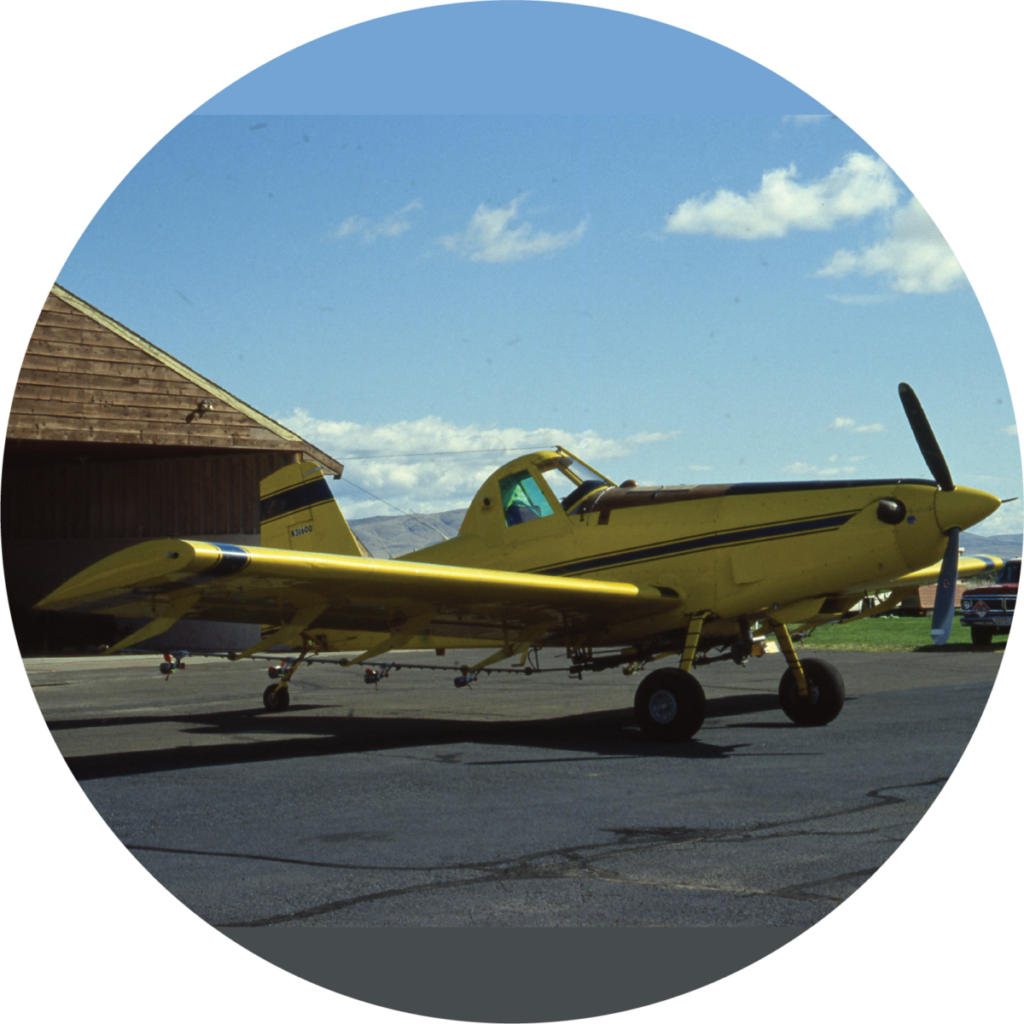
Firefighting planes are an essential tool to help get large fires under control. There are many types of firefighting planes, which we will cover one by one in the following guide.
Aircraft Types: Air Tractor AT-8021
Top Speed: 221 mph2
Capacity: up to 800 gallons of fire retardant
The single-engine airtanker (SEAT) is the smallest of the firefighting planes. It is mostly used to put out hotspots – areas of land where a fire has either just started or is hot enough to blaze up at any moment. Because of its small size, it only carries about 800 gallons of fire retardant. However, its size can also be an advantage, as it can easily land and take off on various types of terrain with very little runway.3
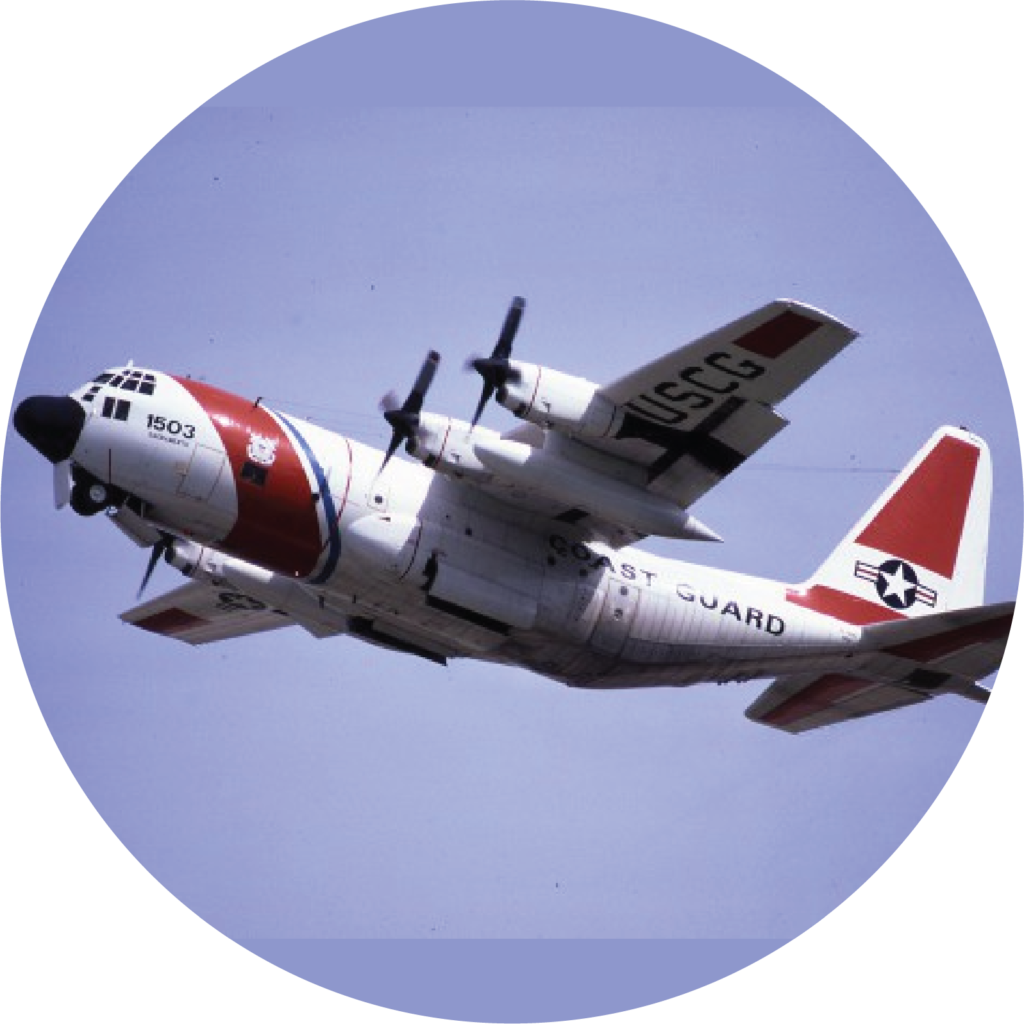
Aircraft Types: P2V, HC-130H, BAe-146, MD-87, C-130Q, RJ85, C-130 H & J
Top Speed: BAe-146 at 498 mph4
Capacity: 2,000 to 4,000 gallons of fire retardant
Large airtanker (LAT) planes, with their capacity for 2,000 to 4,000 gallons of fire-retardant, offer higher and more widespread coverage. This is helpful for putting out forest fires, as they can fly above the canopy. However, their size can make it difficult to land and take off.5
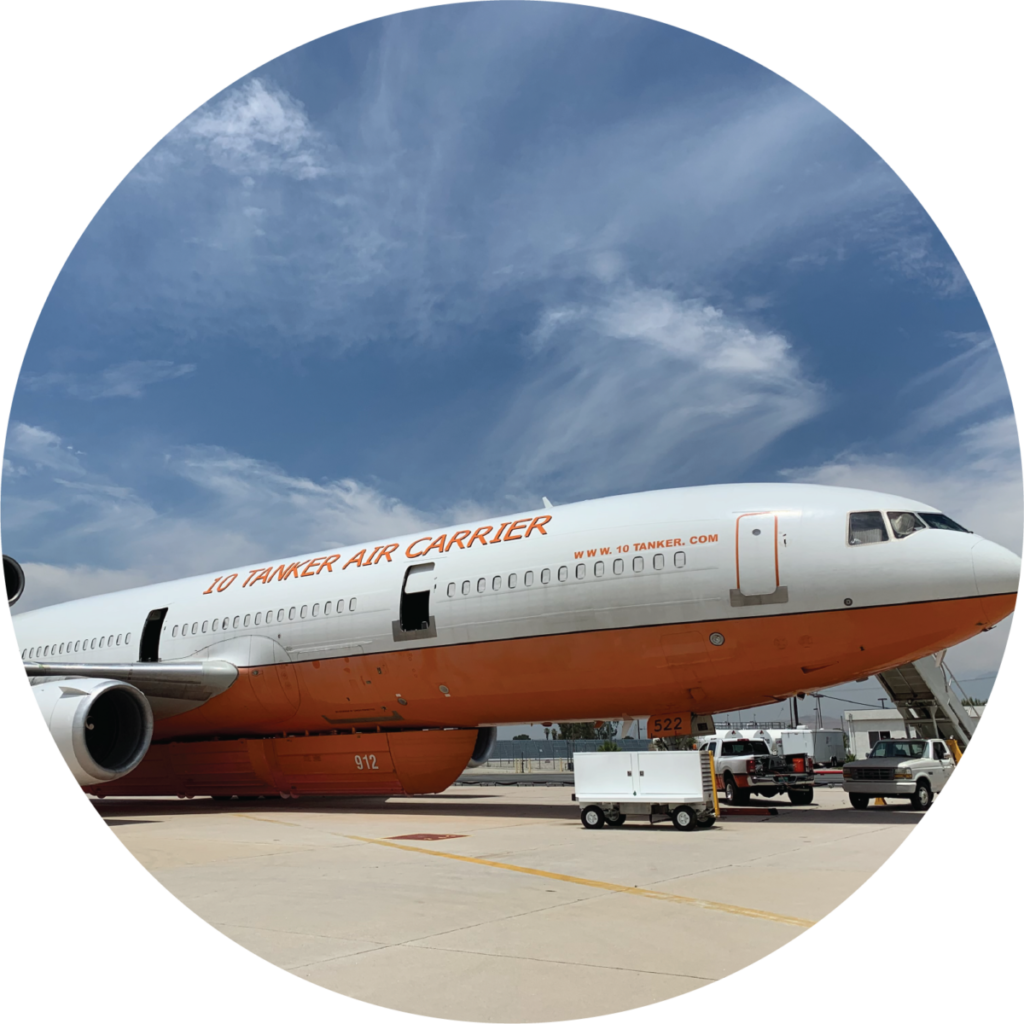
Aircraft Types: Boeing 747 Supertanker and DC-10
Top Speed: Boeing 747 Supertanker at 598 mph6
Capacity: over 8,000 gallons of fire retardant
Very large airtankers (VLATs) are extremely useful for dousing vast swaths of landscape in fire retardant. These planes are designed to hold over 8,000 gallons and dispense at 250 ft above the ground or a forest canopy. The Boeing 747 Supertanker can hold up to 24,000 gallons.7
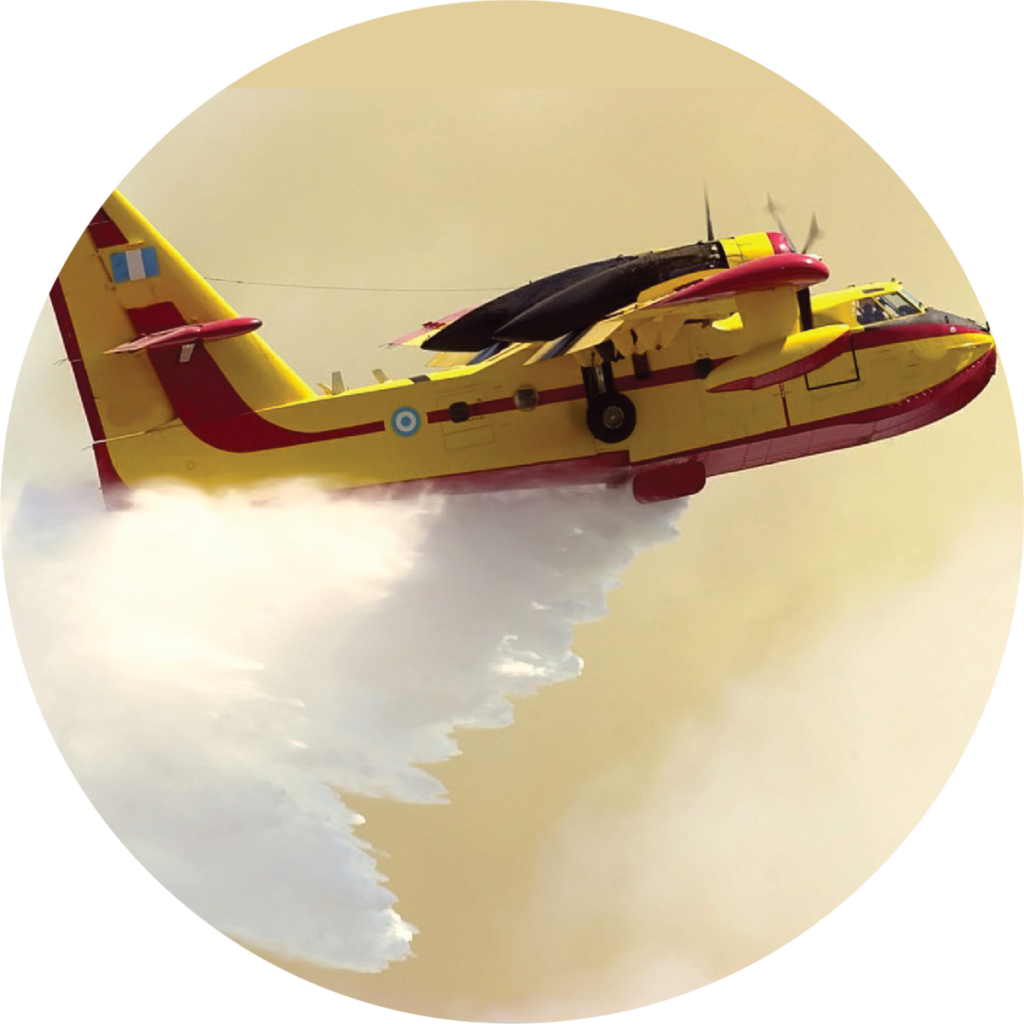
Aircraft Types: Bombardier CL-415 and Air Tractor Fire Boss
Top Speed: Bombardier CL-415 at 223 mph8
Capacity: up to 1,600 gallons of water
A water scooper is exactly what it sounds like; a small plane that flies just over a body of water, such as a lake, and intake up to 1,600 gallons in a span of about 12 seconds. This allows it to refill its water reservoirs at near full speed without having to circle back to a water station. They fly low, no more than 150 ft above ground level, so that they can more accurately dispense water on specific areas to help keep the fire from spreading.9
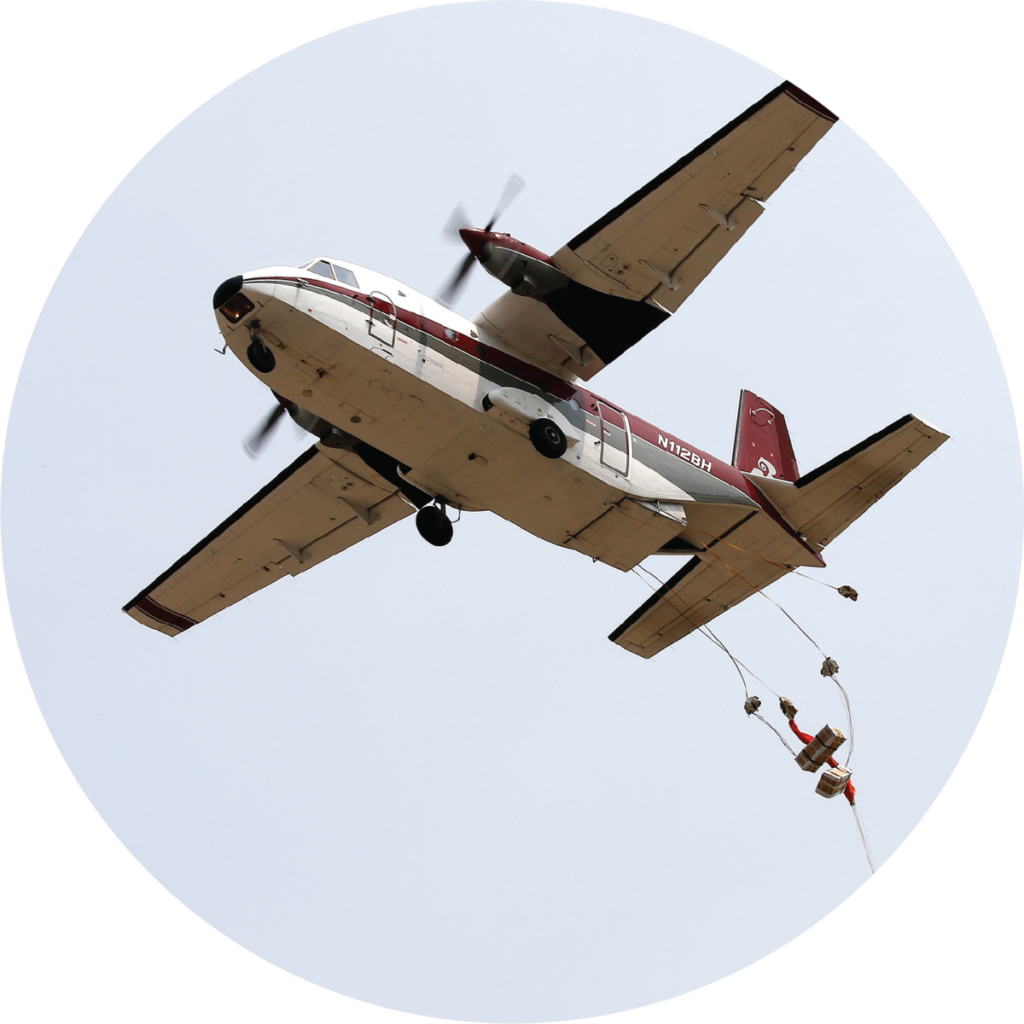
Aircraft Types: DeHavilland DH-6 300 series Twin Otter, Short Sherpa C-23A and SD3-60, Dornier 228, and CASA 212
Top Speed: Dornier 228 at 269 mph10
Capacity: 8-10 smokejumpers
Smokejumpers are firefighters who are specially trained to fight fires. The smokejumper aircraft drops 8-10 of them, as well as cargo, into areas where a wildfire is burning close by. In some cases, this is the only means of transport to a wildfire, depending on where it’s burning and if the roads leading to it are blocked.11
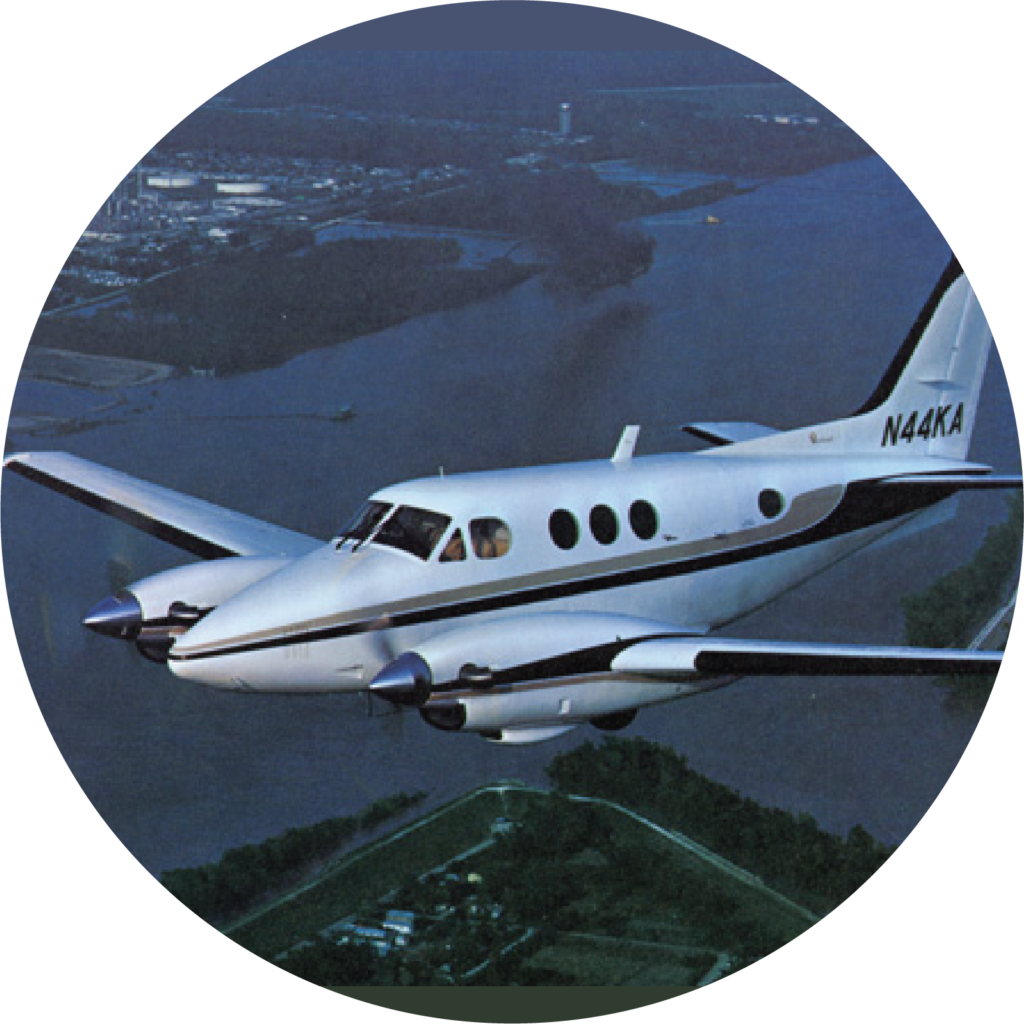
Aircraft Types: Beechcraft King Air 90 and King Air 200
Top Speed: Beechcraft King Air 90 at 311 mph12
Aerial supervision modules, also known as lead planes, are typically the types of firefighting planes to head to the scene of a wildfire first. Their job is to assess the area for the rest of their team. They also mark the areas where airtankers should dispense their fire retardants by releasing a plume of white smoke.13
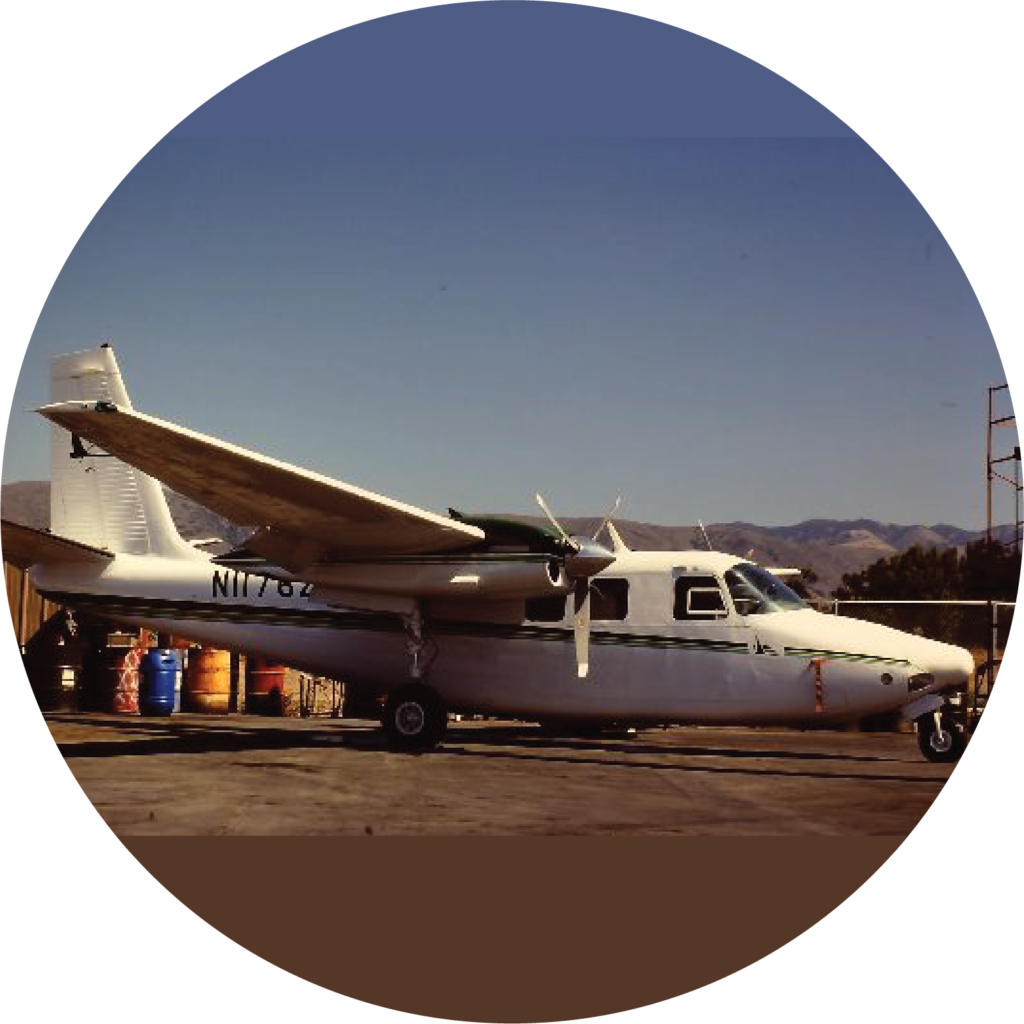
Aircraft Types: Twin Commander 500 and 600
Top Speed: Twin Commander 600 at 498 mph14
Air attack planes are small, highly maneuverable planes that allow the leader of the air contingent of firefighters to get up close and personal with the wildfire. From the vantage point of a Twin Commander 500 or 600, the Air Tactical Group Supervisor can choose access points to the wildfire for the units on the ground as well as decide where the air tankers should dispense fire retardant.15
Visit the Western Fire Chiefs Association (WFCA) blog for more helpful guides to anything and everything you need to know about wildfires.
Stay safe around the campfire with tips from the Western Fire Chiefs Association. Learn essential precautions and practices for a worry-free outdoor campfire.
Discover essential firework safety tips to ensure a dazzling display without accidents. Learn how to celebrate responsibly with expert guidance from WFCA.
Explore the role of AI in wildfire prediction with guidance from the WFCA. Learn how advanced algorithms and data analytics enhance early detection and response.